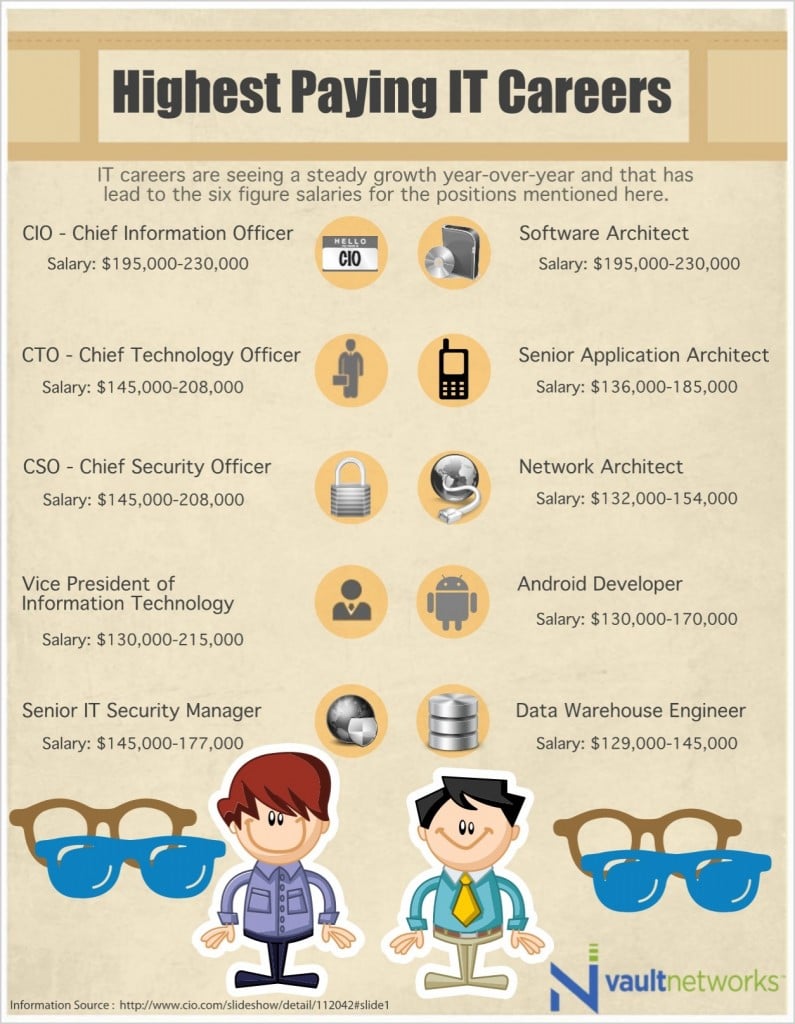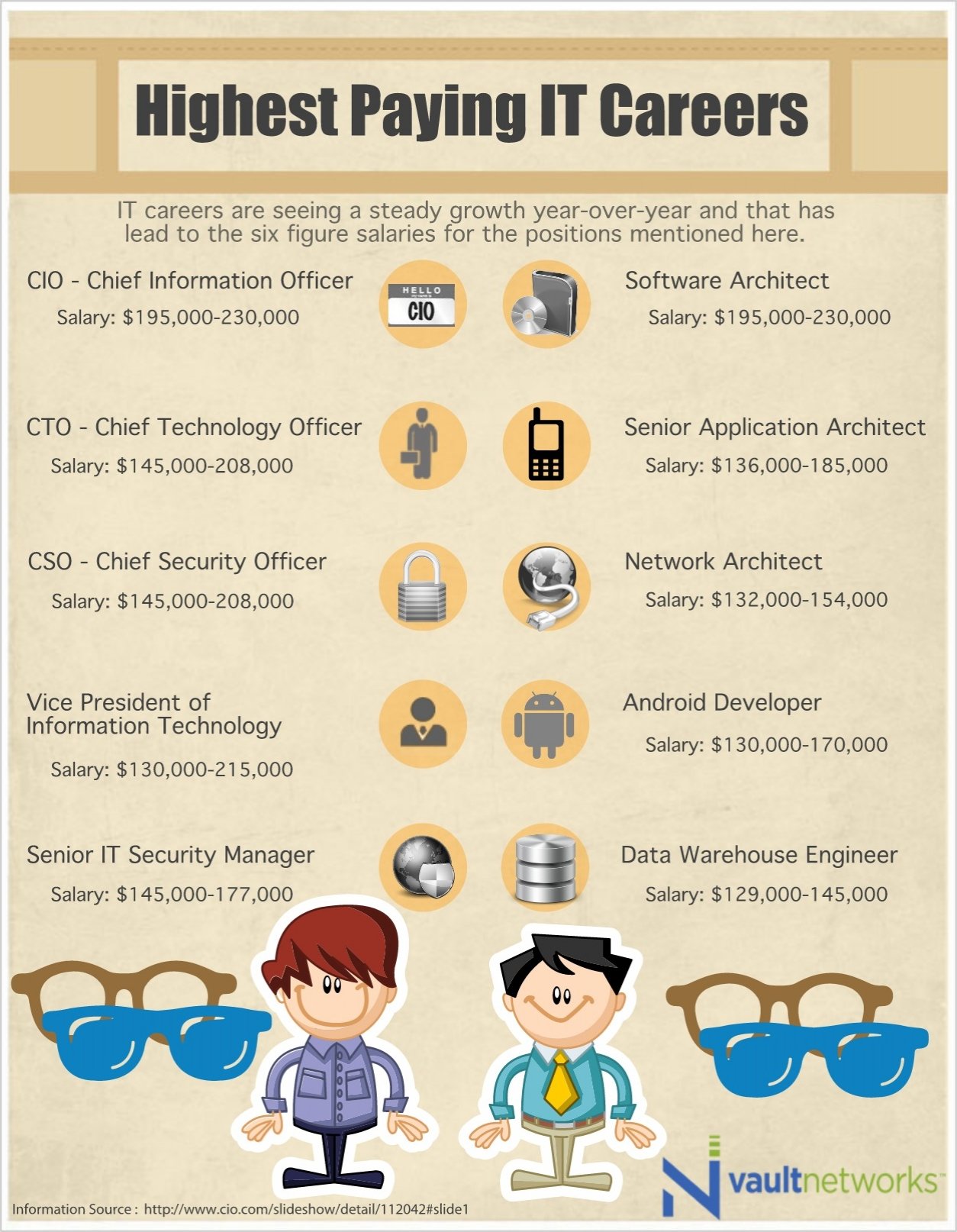Breaking into the World of IT: Entry-Level Positions with Great Potential
The demand for skilled IT professionals continues to grow, with the Bureau of Labor Statistics predicting a 13% increase in employment opportunities through 2030. As technology advances and becomes increasingly integral to various industries, the need for experts who can design, implement, and maintain complex systems and infrastructure is on the rise. For individuals looking to break into the world of IT, there are numerous entry-level positions that offer great potential for career growth and financial rewards. While some IT jobs may be perceived as high-stress, there are many roles that offer a better work-life balance and lower stress levels. In fact, some of the easiest IT jobs that pay well can be found in areas such as data analysis, technical writing, and help desk support. These roles not only offer competitive salaries but also provide a sense of job security and opportunities for advancement. In this article, we will explore the various entry-level positions in IT that can lead to high-paying careers with minimal stress, and provide insights into the skills and qualifications required to succeed in these roles.
What Makes an IT Job ‘Easy’?
When it comes to IT jobs, the term “easy” can be subjective. However, there are certain factors that can contribute to an IT job being considered “easy” or low-stress. One of the key factors is a stable work environment. A stable work environment can provide a sense of security and predictability, allowing IT professionals to focus on their work without excessive stress or anxiety. Another factor is minimal overtime. IT jobs that require excessive overtime can be stressful and lead to burnout. In contrast, jobs with regular working hours and minimal overtime can provide a better work-life balance. A clear career progression path is also important. IT professionals who have a clear understanding of their career goals and the steps needed to achieve them are more likely to feel motivated and satisfied in their jobs. Additionally, a supportive team and management can also contribute to a low-stress work environment. In the easiest IT jobs that pay well, these factors are often present, allowing IT professionals to focus on their work and enjoy a sense of job satisfaction.
Top 5 High-Paying IT Jobs with a Low Stress Level
Based on various studies and job market analytics, here are the top 5 high-paying IT jobs that are considered to have a low stress level:
1. Data Analyst: Data analysts play a crucial role in helping organizations make informed business decisions by analyzing and interpreting complex data. With an average salary range of $60,000 to $100,000 per year, data analysts enjoy a relatively low-stress job with a stable work environment.
2. Technical Writer: Technical writers create user manuals, guides, and documentation to help others understand complex technical information. With an average salary range of $50,000 to $90,000 per year, technical writers enjoy a low-stress job with a flexible work schedule.
3. Help Desk Technician: Help desk technicians provide technical support and assistance to customers and employees, resolving technical issues and troubleshooting problems. With an average salary range of $40,000 to $70,000 per year, help desk technicians enjoy a relatively low-stress job with a stable work environment.
4. Network Administrator: Network administrators are responsible for designing, implementing, and maintaining computer networks, ensuring they are secure and running smoothly. With an average salary range of $60,000 to $100,000 per year, network administrators enjoy a relatively low-stress job with a stable work environment.
5. Database Administrator: Database administrators design, implement, and maintain databases, ensuring they are secure and running efficiently. With an average salary range of $70,000 to $120,000 per year, database administrators enjoy a relatively low-stress job with a stable work environment.
These high-paying IT jobs offer a great balance between job satisfaction, financial rewards, and stress levels, making them some of the easiest IT jobs that pay well.
How to Get Started in a High-Paying IT Career
Breaking into a high-paying IT career can seem daunting, but with the right strategy and preparation, it can be achievable. Here are some tips and advice on how to get started:
1. Gain relevant certifications: Obtaining certifications in specific areas of IT, such as CompTIA A+ or Cisco CCNA, can demonstrate expertise and commitment to potential employers. These certifications can also provide a competitive edge in the job market.
2. Build a professional network: Networking with other IT professionals can provide valuable insights, job opportunities, and mentorship. Attend industry events, join online communities, and connect with professionals on LinkedIn to build a strong network.
3. Develop a strong understanding of industry trends: Staying up-to-date with the latest technologies and trends in IT can make a candidate more attractive to potential employers. Follow industry leaders, read industry publications, and participate in online forums to stay informed.
4. Consider an internship or entry-level position: Gaining hands-on experience in an IT role can provide valuable skills and experience. Consider taking an internship or entry-level position to get started in the industry.
5. Highlight transferable skills: Many skills, such as problem-solving, communication, and teamwork, are transferable across industries. Highlighting these skills can demonstrate value to potential employers and increase the chances of landing a high-paying IT job.
By following these tips and advice, individuals can increase their chances of breaking into a high-paying IT career and finding one of the easiest IT jobs that pay well.
The Role of Soft Skills in IT Careers
While technical skills are essential for success in IT careers, soft skills are equally important. Soft skills, such as communication, teamwork, and problem-solving, can make a significant difference in job performance and career advancement. In fact, many IT professionals with strong technical skills but weak soft skills may struggle to advance in their careers.
Communication is a critical soft skill in IT careers. IT professionals must be able to communicate complex technical information to non-technical stakeholders, including customers, managers, and team members. Strong communication skills can help IT professionals to effectively collaborate with others, resolve conflicts, and build strong relationships.
Teamwork is another essential soft skill in IT careers. IT professionals often work in teams to design, develop, and implement complex systems and solutions. Strong teamwork skills can help IT professionals to collaborate effectively with others, share knowledge and expertise, and achieve common goals.
Problem-solving is a critical soft skill in IT careers. IT professionals must be able to analyze complex problems, identify solutions, and implement them effectively. Strong problem-solving skills can help IT professionals to resolve technical issues quickly and efficiently, and to improve overall system performance.
In the easiest IT jobs that pay well, soft skills are highly valued. Employers seek IT professionals who can communicate effectively, work collaboratively, and solve complex problems. By developing strong soft skills, IT professionals can increase their chances of success and advancement in their careers.
Job Security and Growth Opportunities in IT
The IT industry is constantly evolving, with new technologies and innovations emerging every year. While this can create uncertainty and job insecurity for some IT professionals, it also presents opportunities for growth and advancement. In fact, many IT professionals who are able to adapt to changing industry demands and stay ahead of the curve can enjoy high levels of job security and career advancement.
Emerging technologies such as AI and cloud computing are creating new job opportunities and career paths in IT. For example, AI and machine learning engineers are in high demand, as companies seek to leverage these technologies to improve their operations and competitiveness. Similarly, cloud computing professionals are needed to design, implement, and manage cloud-based systems and infrastructure.
IT professionals who are able to develop skills in these emerging areas can enjoy high levels of job security and career advancement. In fact, many of the easiest IT jobs that pay well are in these areas, with salaries ranging from $100,000 to over $200,000 per year.
To stay ahead of the curve and adapt to changing industry demands, IT professionals should focus on developing skills in emerging technologies and staying up-to-date with industry trends. This can involve pursuing ongoing education and training, attending industry conferences and events, and participating in online communities and forums.
By staying ahead of the curve and adapting to changing industry demands, IT professionals can enjoy high levels of job security and career advancement, and can find some of the easiest IT jobs that pay well.
Real-Life Examples of High-Paying IT Careers
There are many examples of IT professionals who have successfully transitioned into high-paying careers. Here are a few examples:
1. Cloud Architect: John, a cloud architect at a major tech company, earns a salary of $150,000 per year. He has a bachelor’s degree in computer science and has gained certifications in cloud computing. John’s skills in cloud architecture and migration have made him a valuable asset to his company.
2. Data Scientist: Emily, a data scientist at a leading financial institution, earns a salary of $120,000 per year. She has a master’s degree in data science and has gained experience in machine learning and data visualization. Emily’s skills in data analysis and interpretation have helped her company make informed business decisions.
3. IT Manager: David, an IT manager at a major healthcare organization, earns a salary of $100,000 per year. He has a bachelor’s degree in computer science and has gained experience in IT project management. David’s skills in leadership and communication have helped him manage a team of IT professionals and implement successful IT projects.
These examples demonstrate that with the right skills, qualifications, and experience, IT professionals can transition into high-paying careers. The easiest IT jobs that pay well often require a combination of technical and soft skills, as well as a strong understanding of industry trends and technologies.
Conclusion: Finding the Perfect Balance in IT Careers
In conclusion, finding a balance between job satisfaction, financial rewards, and stress levels is crucial in IT careers. While some IT jobs may be high-paying, they may also come with high levels of stress and long working hours. On the other hand, some IT jobs may offer a better work-life balance, but may not be as financially rewarding.
The easiest IT jobs that pay well often require a combination of technical and soft skills, as well as a strong understanding of industry trends and technologies. By gaining relevant certifications, building a professional network, and developing a strong understanding of industry trends, IT professionals can increase their chances of success and advancement in their careers.
It’s also important to note that job security and growth opportunities in the IT industry are constantly evolving. Emerging technologies such as AI and cloud computing are creating new job opportunities and career paths in IT. By staying ahead of the curve and adapting to changing industry demands, IT professionals can enjoy high levels of job security and career advancement.
Ultimately, finding the perfect balance in IT careers requires a combination of technical expertise, soft skills, and a strong understanding of industry trends and technologies. By exploring the various high-paying IT jobs and career paths discussed in this article, readers can gain a better understanding of the opportunities and challenges available in the IT industry.








